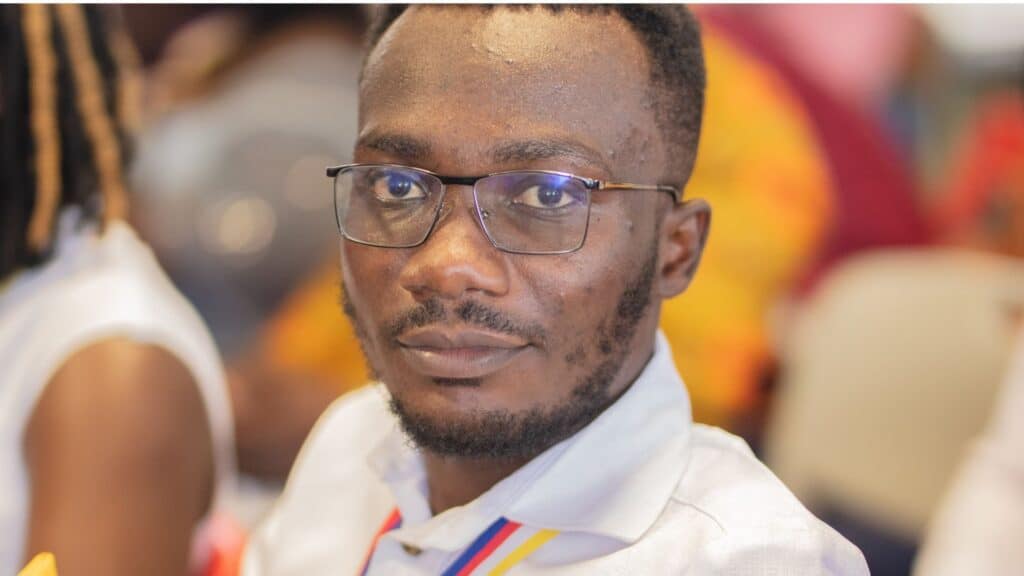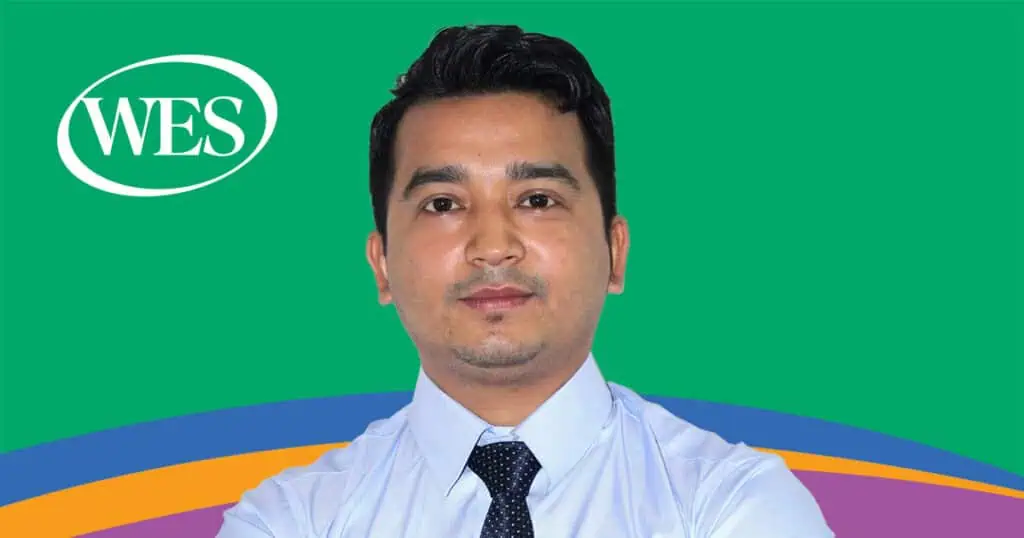How Asare Discovered and Pursued a Passion for Education

Asare is a teacher in Ghana, but his ambitions to pursue advanced degrees and deepen his professional connections in education may soon be taking him to the United States.
As a child, Asare had hoped to follow his father’s path and become a pastor and address important community issues. He recalls his father’s collaborative efforts to improve the community, for example, by helping other local pastors develop their vocational capacities so they could become more financially independent.
However, as Asare grew older, he discovered a different way of helping others. Intrigued by the dynamic nature of education and teaching, he developed a passion to become a teacher.
Prioritizing education
Asare grew up in a community that didn’t prioritize education, however. As he remembers it, many people in his community sought work as farmers or laborers in bigger cities, and the community saw this work as more advantageous than that of pursuing an education.
Asare remembers being considered lazy for attending school, a label shared by a few others who had chosen the same path. “My mother has been the only family member who has always encouraged my academic journey, though she does not have any form of formal education,” Asare says.
Fortunately, perspectives on education shifted over the years. “My community’s view of education has improved significantly, as most children are now enrolled in basic schools, although they are often pulled out of class to help with household or farm chores,” Asare says.
Becoming an educator
After graduating from secondary school, Asare enrolled in St. Ambrose College of Education, a teacher training institution affiliated with the University of Cape Coast in Ghana. There, he received a diploma in basic education. Following college, he earned a bachelor’s degree in educational psychology from the University of Cape Coast.
Today, Asare is an English teacher at a junior high school in the Sunyani municipality Bono region. In his six years of teaching in the region, he is proud to have mentored many students who have gone on to enroll in bigger and well-regarded schools in Ghana.
Though he finds his work rewarding, that’s not to say he hasn’t had to navigate challenges. Asare says that in recent years many parents and guardians, particularly those living in rural areas, resist technology and view it as a harmful addition to the classroom.
However, he is working on changing perspectives by attending local parent-teacher meetings and speaking to parents and guardians to help them better understand the benefits of technology and its role in education. He emphasizes that technology and the internet are key to helping students become self-learners. For example, he encourages his students to use cell phones as a learning tool and to complete their assignments in Google Classroom. The use of such tools can foster greater self-sufficiency and responsibility, Asare believes.
Despite the challenges, Asare is committed to being a thoughtful educator. “What motivates me every day is the awareness that there is a beautiful child out there, just like me, who needs kindness and a guide to find his way to a better future through education.”
Receiving a credential evaluation
Looking ahead, Asare plans to pursue master’s degrees in communications and educational psychology. He hopes to study abroad in the U.S. and forge strong connections with other professionals who share his goal of developing teachers and students into digitally literate lifelong learners.
He obtained a credential evaluation to enhance his chances of being admitted to a university. He also hopes that a credential evaluation will support his scholarship applications.
Looking beyond his educational goals, he also believes that an evaluation report will make it easier for employers to recognize his academic qualifications and understand his professional experience when he begins seeking employment.
Asare believes that a credential evaluation is a helpful tool for anyone planning to study or work abroad. “Go ahead and have your documents evaluated…it increases your chances [and] confidence in both academic and professional settings.”
Are you preparing for the next phase of your life in the U.S. or Canada? Receive your credential evaluation from WES and pursue your goals with confidence.
Related Reading
Mirriam’s Story: Achieving Goals with a WES Credential Evaluation




